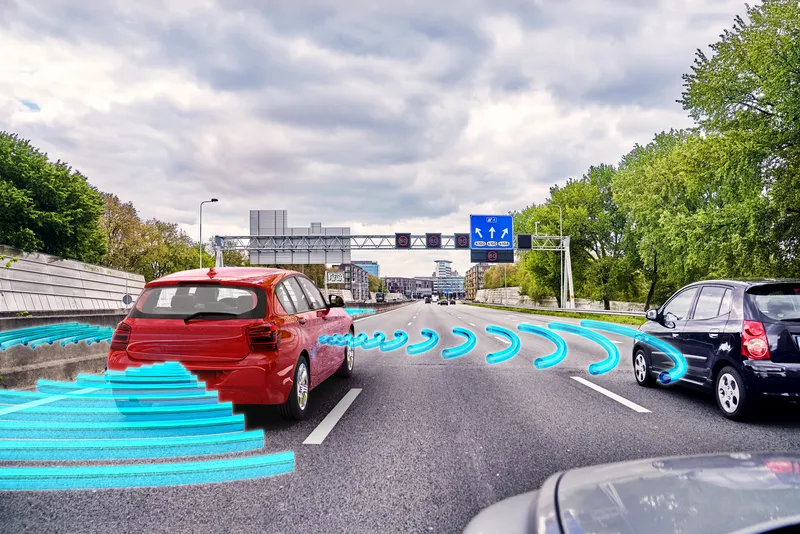New analysis from Frost & Sullivan, Strategic Outlook of Global Autonomous Driving Market in 2016, indicates that the autonomous driving market is all set to receive a huge boost with 80 per cent of automotive original equipment manufacturers (OEMs) looking to finalise their automation technology roadmap in 2016. This trend is expected to pave the way for new business models in the automotive ecosystem. Once the market establishes a conducive testing environment and develops improved sensing capabilities, t
April 14, 2016
Read time: 2 mins
New analysis from 2097 Frost & Sullivan, Strategic Outlook of Global Autonomous Driving Market in 2016, indicates that the autonomous driving market is all set to receive a huge boost with 80 per cent of automotive original equipment manufacturers (OEMs) looking to finalise their automation technology roadmap in 2016. This trend is expected to pave the way for new business models in the automotive ecosystem. Once the market establishes a conducive testing environment and develops improved sensing capabilities, their focus will turn to augmenting data acquisition and validation capabilities.
The analysis finds that one in seven cars will feature highly automated features by 2030.
Interestingly, the need to reduce road fatalities and enhance the commute experience of passengers is unlikely to be a strong adoption driver for autonomous driving. OEMs will instead be impelled by the need to forge the best partnerships and build a reliable eco system with diverse entities that can provide value at various stages.
“Meanwhile, the market is enthusiastically adopting and investing in revolutionary technologies such as Artificial Intelligence (AI) and deep learning,” states Frost & Sullivan Intelligent mobility research analyst Arunprasad Nandakumar. “In fact, a strong AI and deep learning wing is considered vital for designing a sustainable business model for autonomous driving.”
However, the industry is battling several technological challenges in its creation of the ideal sensing suite. Companies are striving to offer vision capabilities in multiple driving conditions at a reasonable price, but the current software and validation capabilities are not sufficient to flawlessly sustain a complex autonomous driving environment. Above all, the industry is in dire need of a favourable regulatory framework.
Industry participants need to adopt a unified approach to devising regulatory frameworks. It is crucial that they make sure that new regulations will assist the growth of the global autonomous driving market rather than just the regional markets. Without global standards and regulations, the market will be impaired by reduced interoperability.
“Overall, the participants that will enjoy success are not likely to be singular entities, but those with the strongest partnerships and ecosystems,” noted Nandakumar. ”These companies are expected to boast a robust product and service portfolio that best address the needs of next-generation drivers.”
The analysis finds that one in seven cars will feature highly automated features by 2030.
Interestingly, the need to reduce road fatalities and enhance the commute experience of passengers is unlikely to be a strong adoption driver for autonomous driving. OEMs will instead be impelled by the need to forge the best partnerships and build a reliable eco system with diverse entities that can provide value at various stages.
“Meanwhile, the market is enthusiastically adopting and investing in revolutionary technologies such as Artificial Intelligence (AI) and deep learning,” states Frost & Sullivan Intelligent mobility research analyst Arunprasad Nandakumar. “In fact, a strong AI and deep learning wing is considered vital for designing a sustainable business model for autonomous driving.”
However, the industry is battling several technological challenges in its creation of the ideal sensing suite. Companies are striving to offer vision capabilities in multiple driving conditions at a reasonable price, but the current software and validation capabilities are not sufficient to flawlessly sustain a complex autonomous driving environment. Above all, the industry is in dire need of a favourable regulatory framework.
Industry participants need to adopt a unified approach to devising regulatory frameworks. It is crucial that they make sure that new regulations will assist the growth of the global autonomous driving market rather than just the regional markets. Without global standards and regulations, the market will be impaired by reduced interoperability.
“Overall, the participants that will enjoy success are not likely to be singular entities, but those with the strongest partnerships and ecosystems,” noted Nandakumar. ”These companies are expected to boast a robust product and service portfolio that best address the needs of next-generation drivers.”







